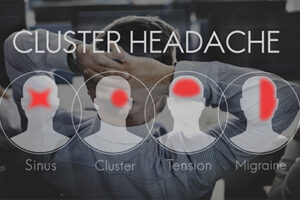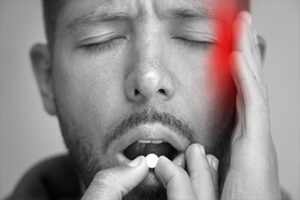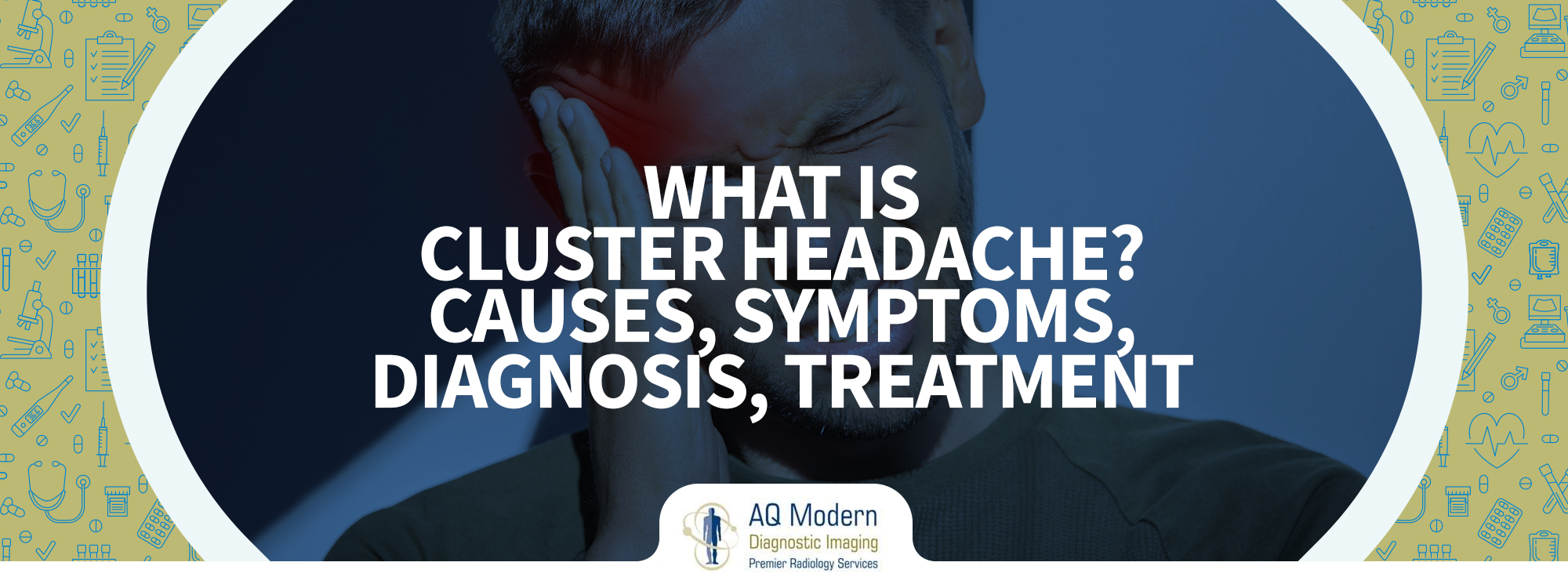A cluster headache is defined as a severe form of headache. The pain is only experienced in one part of the head. It can also occur around the eyes and gradually spread to other areas. Cluster headaches usually come in cycles called cluster periods. These can go on from weeks to months with remission periods in between during which the headache stops.
A Cluster headache can occur at any age. However, the most commonly begin in adolescence and up till middle age. A 1998 study revealed cluster headaches as being more common in men than women. If you are someone who experiences severe headaches frequently that appear suddenly, find out its causes, symptoms, diagnosis, and treatment below:
Types of Cluster Headaches:

The two main types of cluster headaches include episodic and chronic.
Chronic cluster headaches occur regularly. They can go on for longer than a year. In between, you can experience pain-free periods which can last up to a month.
Episodic cluster headaches, on the other hand, last anywhere between a week and a year. The pain-free time in between can last for one month or more.
The two types of cluster headaches are interchangeable; a person who experienced one type can also experience the other.
Also, Learn About: Ways to Diagnose Migraine Headaches
What Causes Cluster Headaches?
Cluster headaches affect 1 in 1000 people. Among the reported cases, 6 out of 10 are men and mostly those who smoke. The main reason for experiencing a cluster headache is unknown to date. However, there are various theories about what causes a cluster headache.
According to research, there is an increase in activity in the hypothalamus during an episode of a cluster headache. The hypothalamus is found in the brain. Its function is to control hunger, thirst, and body temperature. It also releases chemicals that widen the blood vessels.
It was theorized that this might be the cause of cluster headaches. However, this claim hasn’t been substantiated.
Other theories relate to neurotransmitters and inflammatory factors. However, due to the rarity of the ailment, finding a larger sample size is impossible. According to researchers, the cause of cluster headaches could be genetic.
Cluster headaches are found to be linked with smoking, allergies, and irregular sleep cycles. Other triggers for cluster headaches can include exercising in hot weather, sudden rise in temperature, and alcohol.
Symptoms of Cluster Headaches:

One of the top symptoms of this kind of headache includes feeling continuous pain. It may lead to a sharp, stabbing, or burning sensation. Cluster headaches begin suddenly without any warning.
The pain initiates in the area around the eyes and extends to other parts gradually. It can affect the shoulders, neck, and face as well. It is only experienced in one part of the head. The headache can wake a person from sleep at night and can occur at the same time every night.
Those who suffer from cluster headaches may also experience restlessness, pale skin, facial sweating, small pupil size, redness, watering or swelling in the eyes, blocked, runny or stuffy nose, and drooping of the eyelid.
A cluster headache can last for 15 minutes to an hour. After the attack, the person may feel drained.
Cluster Headache Diagnosis:
The diagnosis of a cluster headache depends on your description of the condition, including its frequency of occurrence, the intensity of pain, and the associated symptoms. Your medical health practitioner will most likely begin by taking your medical history and asking relevant questions about the pain.
A neurological examination may be conducted to rule out the chances of a brain anomaly. It is a procedural test conducted for patients suffering from cluster headaches. A neurological assessment includes testing your reflexes, senses, and nerves.
If the neurological examination is not enough, the doctor may need an open MRI or full-body CT Scan to rule out the occurrence of other serious health conditions such as an aneurysm or tumor. These tests reveal detailed images of the brain and blood vessels that the doctors then use to determine the cause of the headaches.
Treatment for Cluster Headache:

Treatment for cluster headaches involves using medication to relieve the pain and prevent symptoms from occurring again. In rare cases, doctors recommend surgery when it seems nothing else is working.
Pain medication is effective in stopping headache after it has begun. There are various medications that a doctor can prescribe. Treatment includes whatever is most suitable for you. Pain medications can include the following:
DHE:
It is injected medication that relieves the headache in 5 minutes.
Oxygen:
Inhaling 100-percent pure oxygen can help relieve the pain.
Triptan:
Triptan is a nasal spray medication that constricts blood vessels, thereby giving relief from symptoms
Capsaicin cream:
The cream is applied to the affected area and may relieve the pain.
Other medications can help prevent cluster headaches. These may not be completely effective but may help reduce the frequency. These medications include steroids, antidepressants, blood pressure medications, lithium carbonate, or muscle relaxants such as baclofen.
The last treatment option for relief from cluster headaches is surgery. It is recommended for those who don’t get relief from headaches from other methods. It is usually the last resort for patients.
One method is deep brain stimulation which includes inserting an electrode deep into the brain. However, there are less invasive surgery options now available.
Most surgical procedures include obstructing the trigeminal nerve, which is the main pathway for pain. The nerves control the areas around your eyes. One drawback of the surgery is that a single misstep can lead to loss of sensation in the face and head and weakening of the jaw.
Alternative Treatments:
You can try alternative treatments as well to alleviate the pain. You can consult your doctor to take melatonin, which is a medication often taken during jet lag. It might help lessen the frequency of headaches.
Deep breathing exercises are another solution. They positively affect the body and mind. Taking deep breaths helps keep the nerves calm and control stress. Breathing exercises can be paired with other forms of medication for effective treatment. However, there is no research that shows their effectiveness, but there is no harm in trying.
You can also try different kinds of breathing exercises such as rhythmic breathing or visualized breathing that helps relax the mind.
How to Prevent Cluster Headaches:
In some cases, you may be able to stop cluster headaches by avoiding using tobacco, alcohol, cocaine, and foods that contain high amounts of nitrates. These foods include preserved meats, bacon, or hot dogs.
You may also be able to prevent cluster headaches if you can avoid hot weather and hot baths, engage in strenuous activities, and avoid high altitudes. A regular sleep schedule may also help.
In Summary:
A cluster headache is one of the most severe types of headaches that can occur multiple times a day. Since they reoccur in cycles, they can extend over a long period of time. In some people, they can occur at the same time each year.
A clear symptom of a cluster headache is experiencing a sharp pain on one side of the head or around the eyes. It extends to other parts gradually. No effective treatment has yet been found for cluster headaches. However, a combination of methods and medicines can reduce the occurrence of headaches and the severity of pain.
If your healthcare practitioner has asked for a full-body CT scan or an open MRI in NJ, AQMDI offers a reliable and safe screening process. We have the most advanced imaging equipment that allows us to offer reliable and accurate testing results. We ensure you feel comfortable throughout the process and all your queries are answered.

